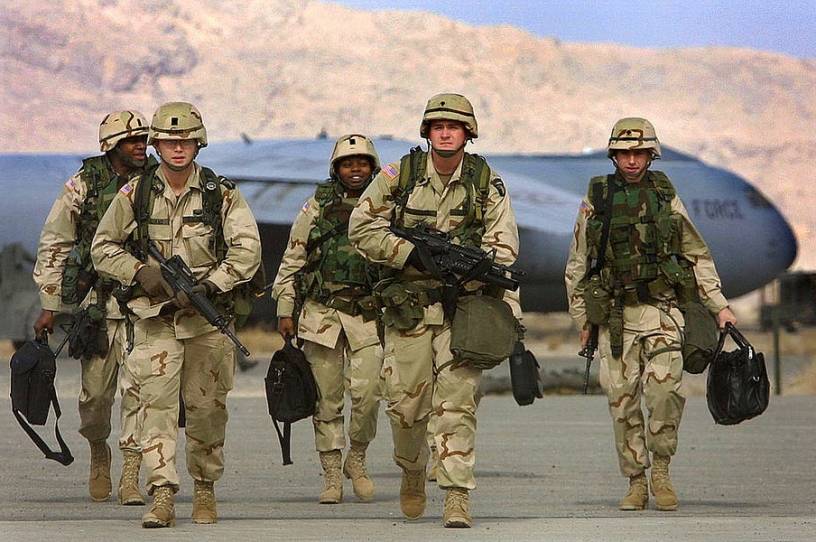The Moral Legitimacy of Our Actions in Afghanistan

I clearly remember my first time in Afghanistan. A thin dusting of windblown snow collected in patches around the Kabul Airport ramp on that December morning 15 years ago. The bitter cold whistling down from the Hindu Kush needled the back of my neck. As the sun rose, a layer of low haze spread over the city—smoke from trash fire pits and the countless Bukhara heaters burning animal dung. I surveyed the hilltop adjacent to the ramp where a multinational team downloaded cargo from my C-17 and marveled at how easy it would be to open fire on all of us.
Winter’s arrival marked the end of the fighting season. As enemy fighters hunkered down in brutal mountainous conditions and fighting diminished, the pace of the US mobility forces ticked up with C-17s and C-130s resupplying the effort with war materiel and reinforcements. Even in those relatively early days, misgivings abounded about the state of the war. An anxious, green lieutenant, I struck up a conversation with a homebound soldier later that day at the USO in Bagram and asked his opinion. His curt response: “We’re losing this war and Washington doesn’t know about it.”
I’ve thought a lot over the past week about that conversation and my time flying missions in Afghanistan. Over 15 years and three presidents, I served as a C-17 pilot in the Air Force Reserve. I saw the heavy occupation days, the surge, the drawdown, forward operating base closures and reopenings, the constantly shifting political objectives always pursued with the messy grind of military logistics. It is tempting to believe that the compound effects of so many errors over two decades yielded an inevitable defeat. But to focus on this is to miss the death blow that threatens to haunt America for generations to come.
Even though many in the ranks legitimately questioned the efficacy of ever-shifting strategy, tactics, or rules of engagement, very few ever questioned the moral legitimacy of our actions in Afghanistan. We were objectively the good guys. We were fighting demonstrably bad people. Yet somehow, the politicians and the political media back home chased their tails to the point that the nation lost sight of that fundamental truth. Failure to recognize the moral righteousness and necessity of America’s mission in Afghanistan and elsewhere, or to outright deny it, is a tragedy that will spawn a thousand more.
The tension between advocates and critics of American power is necessary because, on the whole, it keeps us honest. However, when we swing too far in the direction of either camp, we make regrettable decisions. Obama learned this the hard way in Iraq. Yet, since the advent of the Trump administration, our nation has moved with alarming speed to reject the fundamental truth that America’s strength in the world is a worthwhile force for good. This is a catastrophic mistake.
Hubris, complacency, half-measures, inappropriate blurring of domestic political objectives into war strategy—the allied effort in Afghanistan suffered from all of the above. But we never lacked moral legitimacy. As the Taliban has demonstrated in its chaotic first week in power—hunting down our Afghan allies, executing the family members of journalists, firing indiscriminately into crowds and forcing women to “marry” fighters—it deserves the targeted firepower of a righteous, freedom-loving people, not our gelded acquiescence. This fundamental truth isn’t lost on Americans as we watch the current disaster play out on our screens.
In assessing America’s role as international leader after the fall of Saigon, George H.W. Bush, then ambassador to China, wrote in his diary, “As soon as America doesn’t stand for something in the world, there is going to be a tremendous erosion of freedom.” Historian Jeffrey Engel argues that Bush understood the key to enabling American leadership abroad was a renewal of Americans’ commitment to first principles and civic purpose at home. Today we face a similar reassessment of America’s role in the world. Once again, we must understand the grave consequences blind American retrenchment would have for millions around the globe. We must recommit to our first principles and the righteous purpose of America in the world.
In my lifetime, America has repeatedly rushed into war with an inchoate definition of victory. Such recklessness is an indictment of our political leaders. However, the reality of standing as a beacon of freedom for the world is that our job is not always to permanently defeat evil. Often, we accomplish the mission through the unglamorous work of holding evil at bay. If the United States cannot recognize our duty here, who will?
Steve Stampley (@stevestampley) is a conservative writer and former hill staffer. He’s contributed to National Review, Washington Examiner, ArcDigital and elsewhere.